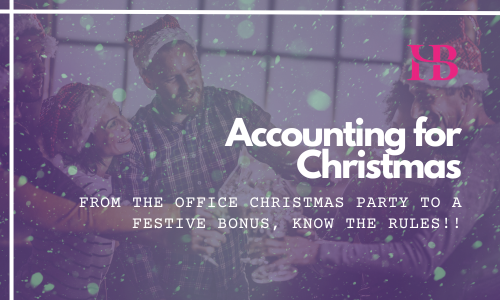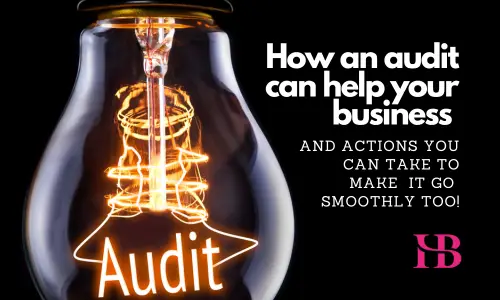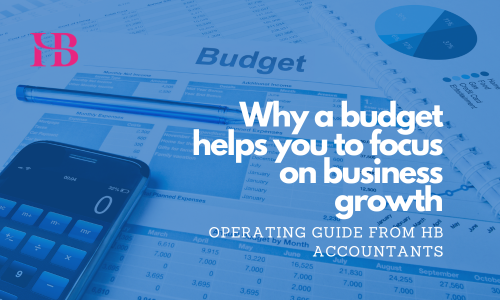As we leap towards the start of the festive season, with Christmas only a few weeks away (sorry!), we are sure that marketing and people teams are full speed ahead with planning Christmas parties and finding ways to to thank everyone for their hard work and loyalty over the past year. This means it is a great time to revisit HMRC’s guidance around parties and Christmas giving to your team and to your clients.

For your clients:
Christmas Cards or charitable donation in lieu of a card
Whilst the festive tradition of sending a Chrimstmas card may be slowly disappearing as more companies choose to send a digital seasonal message for environmental reasons, Christmas cards can still be a fantastic marketing channel.
The card itself and postage may both be recorded as a tax-deductible expense. If you choose to make a charitable donation to a registered local charity such as a school PSA, grassroots sports club, or community activity in lieu of sending cards, this is also tax deductible.
Gifts: What are the rules on Gifts for Your Clients?
Many small businesses recognise their key clients with a gift at Christmas. To be tax deductible, the gift must bear a conspicuously branded or by a clear advertisement, be worth less than £50 in value, and cannot be in the form of food, drink, tobacco or vouchers.
For your employees:
Gifts: What are the rules on Gifts for your Employees?
If you’re a limited company, you can treat yourself and your staff to a gift but this must be considered ‘trivial’ – so a bottle of wine, vouchers or a box of chocolates. It can be valued at no more than £50 and it cannot be cash. Gifts that fulfil these requirements are exempt from PAYE and Employer’s National Insurance but bear in mind that delivery charges count towards the limit.
If you do present a gift over £50, this needs to be declared by submitting a P11D to HMRC. These higher-value gifts are considered a perk, so you’ll need to pay National Insurance too.
A festive bonus
Once upon a time, it was traditional to give a small cash bonus to staff in a Christmas card. Today, this would count as earnings and therefore, be liable for tax. If you want to give a Christmas bonus, you’ll need to add the amount to your payroll and apply the usual PAYE taxes and National Insurance deductions.
Other ideas to recognise your team
If you’re looking for a different way to say thank you, without tax liabilities or additional declarations, then you could:
- Increase the holiday allowance
- Give everyone a day or half-day for Christmas shopping
- Offer flexible working so that families can attend festive events, such as a carol concert
- Deliver a team-building experience
Christmas office parties
If you do want to go ahead with a Christmas party – and let’s be honest, it is a great way of thanking all your staff for their hard work – there are rules about how much you can spend on a party.
You must record business Christmas party expenses
Each business has a party allowance of £150 inclusive of VAT per employee – which can be used for virtual celebrations and in-person events. This amount must cover all entertainment, food and drink, accommodation and transport. If you hold a Christmas party, it must be open to all of your employees.
If the cost of qualifying parties goes over £150 per head then unfortunately all the costs (not just those above £150 per head) are taxable on the employee as a benefit in kind.
Beware if you invite clients to your Christmas party
If you decide to invite clients to your Christmas party alongside your employees, it’s important that the party is first and foremost for your staff. This is because HMRC states that you can’t claim client entertainment as a business expense. The party needs to be clearly billed as a staff event and the focus needs to be on your team, not your clients.
How can we help?
If you have questions about your Christmas party or your wider festive spending, then give us a call! The HB team is always available to support your accountancy needs, help you remain compliant with HMRC directives, and to discuss ways to boost you and your team’s productivity.
If you would like to learn more about the services that we offer, discover how we can give you real confidence in the future of your business, or if you are a larger business that requires auditing, then contact us today. We’re accountants for business and we are here to help you grow efficiently.
The information contained above is for general guidance purposes only. Whilst every effort has been made to ensure the contents are accurate, please note that each individual has different circumstances and it is essential that you seek appropriate professional advice before you act on any of the information contained herein. HB Accountants can accept no liability for any error.
Read our latest blogs below
- HMRC Advisory Fuel Rates (AFRs) from 1st June 2025
 HMRC has published the latest Advisory Fuel Rates (AFRs) which apply from 1 June 2025. … Continue reading
HMRC has published the latest Advisory Fuel Rates (AFRs) which apply from 1 June 2025. … Continue reading - How an audit can help your business (and actions you can take to make it go smoothly too!)
 An audit may be a legal requirement for your business but a well managed audit … Continue reading
An audit may be a legal requirement for your business but a well managed audit … Continue reading - Why a budget helps you to focus on business growth
 Are you looking for clarity over the future direction of your business? Do you want … Continue reading
Are you looking for clarity over the future direction of your business? Do you want … Continue reading - How a SME Owner Can Create More Time
 SME owners and managers – are you part of the one in five small and … Continue reading
SME owners and managers – are you part of the one in five small and … Continue reading - A New Academic Year for our Student in Zambia
 As the new academic year unfolds in Zambia, we are delighted to share an update … Continue reading
As the new academic year unfolds in Zambia, we are delighted to share an update … Continue reading - Benefits in Kind via the Payroll
 From April 2027, Benefits in Kind (BIK) payments will need to be paid and recorded … Continue reading
From April 2027, Benefits in Kind (BIK) payments will need to be paid and recorded … Continue reading

